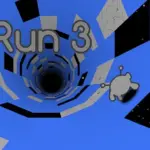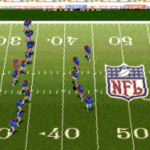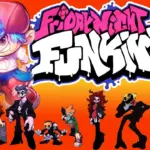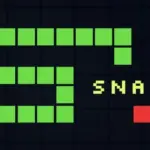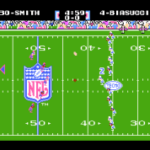Chainsaw Man, the wildly popular manga and anime series created by Tatsuki Fujimoto, has captivated audiences worldwide with its unique blend of horror, humor, and heart. At the core of this gripping narrative lies a fascinating concept: Devils, manifestations of human fears that wreak havoc on society. These Devils serve as more than just antagonists; they are intricate metaphors for the anxieties and phobias that plague our modern world. Let’s delve into how Read Chainsaw Man Manga Free Online Devils brilliantly represent real-life fears, exploring the deeper meanings behind these terrifying entities.
The Concept of Devils in Chainsaw Man
In the world of Chainsaw Man, Devils are born from human fears. The stronger the fear, the more powerful the Devil. This ingenious premise allows Fujimoto to explore a wide range of societal issues and personal anxieties through the lens of supernatural beings. From common phobias to complex existential dread, each Devil embodies a specific fear that resonates with readers on a profound level.
The manga’s protagonist, Denji, becomes a hybrid known as Chainsaw Man after merging with Pochita, the Chainsaw Devil. This transformation sets the stage for encounters with various Devils, each representing a unique facet of human fear. As Denji and his fellow Devil Hunters confront these entities, readers are invited to reflect on their own fears and the impact they have on society.
Iconic Devils and Their Real-World Parallels
Chainsaw Man’s Devils are not just random monsters; they are carefully crafted representations of real-life anxieties. Let’s examine some of the most memorable Devils and their connections to everyday fears:
The Gun Devil: Violence and Mass Destruction
Perhaps the most feared Devil in the series, the Gun Devil embodies the terror of gun violence and mass shootings. Its very existence reflects the anxiety many people feel about the prevalence of firearms and their potential for devastating harm. The Gun Devil’s ability to kill instantly and indiscriminately mirrors the sudden, shocking nature of real-world gun violence.
The Darkness Devil: Fear of the Unknown
One of the most primal human fears is the fear of darkness and the unknown. The Darkness Devil in Chainsaw Man represents this universal anxiety, tapping into our instinctive dread of what might be lurking in the shadows. Its surreal and nightmarish appearance embodies the irrational fears that can consume us in moments of uncertainty.
The Future Devil: Anxiety About What’s to Come
Many people experience anxiety about the future, and the Future Devil perfectly encapsulates this fear. Its ability to see into the future plays on our desire to know what’s coming while simultaneously dreading potential negative outcomes. This Devil represents the paralyzing effect that worry about the future can have on our present lives.
Psychological Depth in Devil Design
Fujimoto’s genius lies not just in creating visually striking Devils, but in imbuing them with psychological depth that resonates with readers. The design and abilities of each Devil are carefully crafted to evoke specific emotional responses, making them more than just monsters to be defeated.
The Eternity Devil: Claustrophobia and Repetition
The Eternity Devil traps its victims in an endless loop, reflecting fears of being stuck in monotonous routines or suffocating situations. Its ability to create a sense of hopelessness and despair mirrors the feelings experienced by those struggling with depression or feeling trapped in their circumstances.
The Control Devil: Loss of Autonomy
Represented by the character Makima, the Control Devil taps into fears of losing one’s free will and being manipulated by others. This Devil’s abilities reflect anxieties about power dynamics, social control, and the loss of individual identity in the face of overwhelming authority.
Social Commentary Through Devil Encounters
Chainsaw Man uses its Devils not just for thrills and action, but as vehicles for social commentary. Through the interactions between humans and Devils, Fujimoto explores complex themes and societal issues:
1. Environmental Concerns: Devils like the Typhoon Devil or the Sea Cucumber Devil can be seen as manifestations of fears related to climate change and environmental destruction.
2. Technological Anxiety: The Television Devil represents fears about media manipulation and the overwhelming influence of technology on our lives.
3. Social Pressures: Devils that prey on specific demographics or social groups highlight societal pressures and discrimination.
4. Existential Dread: The very concept of Devils being born from human fears touches on existential questions about the nature of fear itself and its role in shaping our reality.
The Impact on Character Development
The presence of Devils in Chainsaw Man doesn’t just serve the plot; it significantly impacts character development. As characters like Denji, Aki, and Power confront various Devils, they are forced to face their own fears and insecurities. This internal struggle adds depth to their arcs, making them more relatable and human despite the supernatural setting.
The way characters react to and overcome (or succumb to) their fears, as represented by Devils, drives their personal growth throughout the series. This psychological journey resonates with readers, who may see reflections of their own struggles in the characters’ experiences.
Conclusion: A Mirror to Our Fears
Chainsaw Man’s Devils are more than just formidable opponents for our heroes to overcome. They serve as a mirror, reflecting the complex tapestry of human fears that shape our world. From personal phobias to societal anxieties, these supernatural entities provide a unique lens through which readers can examine their own fears and the collective anxieties of modern society.
Fujimoto’s masterful blend of horror, humor, and heart in creating these Devils has resulted in a manga that is not only entertaining but deeply thought-provoking. As readers, we are invited to confront our own fears through the safe distance of fiction, potentially gaining new insights into the anxieties that drive us.
Have you found yourself relating to any particular Devils in chainsawmanga.net? How do you think these representations of fear compare to your own experiences? Share your thoughts and join the discussion about how manga like Chainsaw Man can help us understand and confront our deepest fears.





